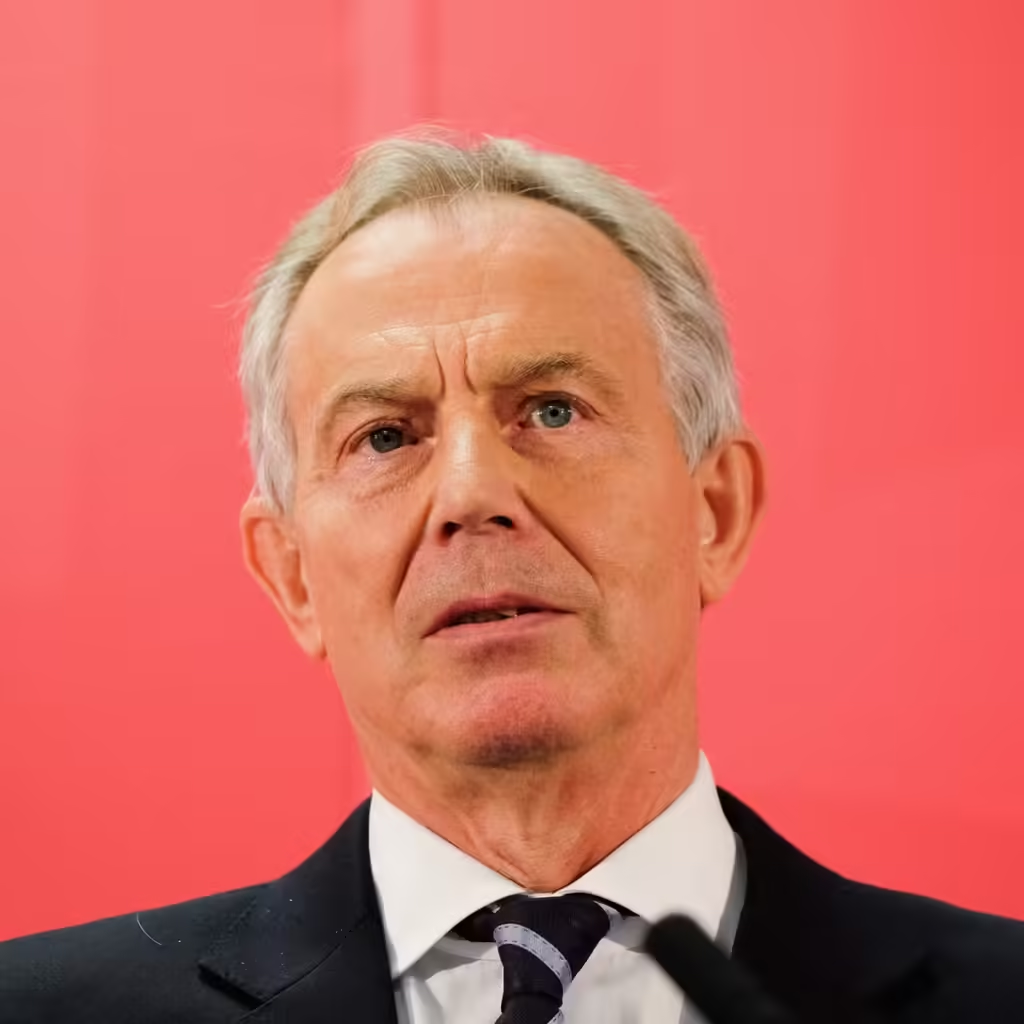
Table of Contents
Who Is Tony Blair?
Tony Blair is a British politician who served as the youngest leader of the Labour Party from 1994 to 2007, and as the Prime Minister of the United Kingdom from 1997 to 2007. He is known for transforming the Labour Party and leading the country through a period of significant political and economic change. Blair stepped down from his role as Prime Minister and party leader in 2007. More recently, he has appeared in the press in relation to allegations regarding his involvement in a phone-hacking scandal.
Early Life
Born Anthony Charles Lynton Blair on May 6, 1953, in Edinburgh, Scotland, Blair spent much of his childhood in Durham, England. He attended the Chorister School and was heavily influenced by his father, Leo Charles Blair, a prominent attorney who had political ambitions cut short by a debilitating stroke when Tony was just 10 years old. As a result, Blair and his siblings faced financial challenges while their father recovered, instilling in Blair a strong sense of resilience and ambition.
Blair inherited his father’s drive but also showed a talent for performance, regularly acting at Fettes College in Edinburgh, where his family relocated during his teen years. At St. John’s College, Oxford University, Blair studied law, while also exploring his passion for music, performing as the lead singer of a rock band. After completing his undergraduate studies, Blair earned a law degree in 1975 and began his career in employment law.
Blair’s personal life was also marked by his marriage to Cherie Booth, a fellow barrister and distinguished graduate of the London School of Economics. They married in 1980 and had four children together.
Labour Party Leader
Blair’s political career began in the 1970s, when he joined the Labour Party during a period of internal strife and diminishing public confidence. He first ran for Parliament in 1982 but was unsuccessful. However, in 1983, Blair secured a seat in Parliament representing the Sedgefield District. During this time, the Labour Party was undergoing significant changes, with Neil Kinnock rising to leadership and later promoting Blair through the ranks. By 1994, after the sudden death of Labour leader John Smith, Blair was elected to succeed him, becoming the youngest leader in the party’s history.
As leader, Blair championed “New Labour,” a centrist approach designed to modernize the party and broaden its appeal. He promoted policies aimed at reducing taxes, enhancing trade, curbing crime, and empowering local governments. Blair’s vision was to build a Britain where success was based on individual contribution to society. He also introduced key reforms, including the adoption of a “one person, one vote” system for electing party leadership.
Blair remained Labour leader until 2007, and his tenure significantly reshaped both the party and the political landscape of the UK. His legacy as a transformative leader is still a point of discussion in contemporary British politics.
Tony Blair: A Political Legacy
Following the Labour Party’s landslide victory over the Conservatives in the May 1997 general election, Tony Blair, at just 43 years old, became the UK’s youngest prime minister since Lord Liverpool in 1812. His early tenure was marked by significant reforms, including granting the Bank of England the power to set interest rates independently and fulfilling his campaign promise to establish a national minimum wage. Blair also played a crucial role in brokering the 1998 Good Friday Agreement, which helped bring peace to Northern Ireland after decades of conflict.
In 2001, Blair led Labour to another decisive election victory, just before the September 11 terrorist attacks. He became a staunch ally of U.S. President George W. Bush in the subsequent war on terror, advocating for the overthrow of Saddam Hussein in the lead-up to the 2003 Iraq invasion. Domestically, Blair increased taxes to boost funding for education and healthcare, and toward the end of his second term, he began focusing on climate change issues.
Blair made history again in 2005 by becoming the first Labour leader to win three consecutive general elections. However, his decision to support the Iraq War had significantly eroded his popularity, reflected in a reduced parliamentary majority. Just two months after London was awarded the 2012 Summer Olympics, the city was rocked by a series of deadly bombings, intensifying calls for Blair to step down. Despite overseeing a period of economic growth, Blair announced in 2007 that he would resign as both prime minister and leader of the Labour Party, paving the way for his successor, Gordon Brown.
Post-Political Career
After leaving office, Blair remained active in international and public affairs. He was appointed as the Quartet’s Special Envoy to the Middle East, representing the United Nations, European Union, United States, and Russia in efforts to promote peace and prepare Palestine for statehood.
Blair also focused on philanthropic work, founding the Tony Blair Sports Foundation in 2007, aimed at increasing youth participation in sports, particularly in socially excluded communities in the North East of England. In 2008, he launched the Tony Blair Faith Foundation to foster interfaith understanding and cooperation. Additionally, Blair established Tony Blair Associates in 2009, offering pro bono consultancy on political and economic reforms.
Blair’s career continued to stir controversy. In 2011, he was awarded the Liberty Medal by former U.S. President Bill Clinton. However, in 2012, he and Bush were found guilty of crimes against peace and humanity by the Kuala Lumpur War Crimes Commission for their involvement in the Iraq War, though the findings had little international legal standing. In 2014, Blair faced criticism after it was revealed that he had advised a News of the World editor during the phone-hacking scandal involving Rupert Murdoch’s media empire.
In late 2016, Blair consolidated his various charitable and advocacy efforts into the Tony Blair Institute for Global Change, reaffirming his commitment to addressing global challenges such as governance, extremism, and inequality. His legacy remains a subject of debate, defined by both his domestic achievements and his divisive foreign policy decisions.
